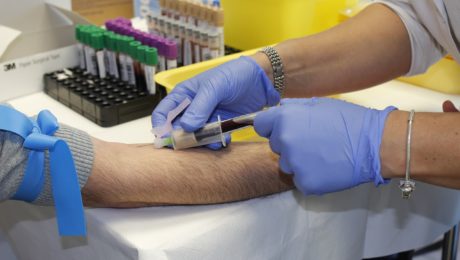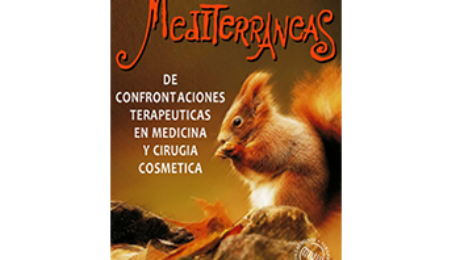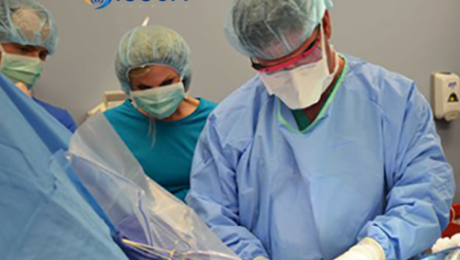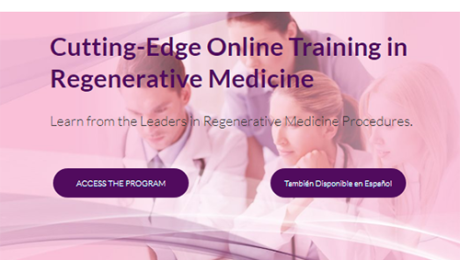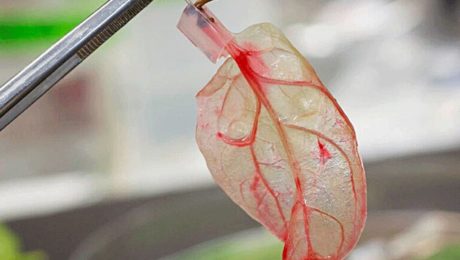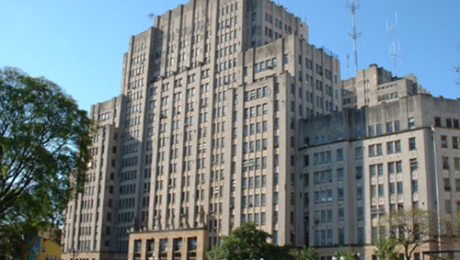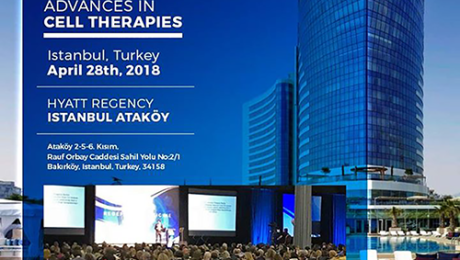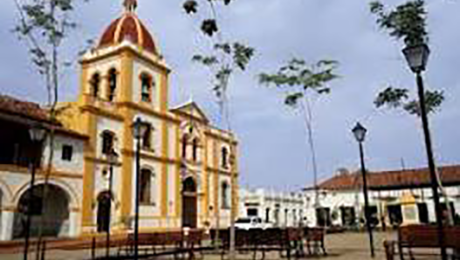tem Cell Platelet-Rich Plasma: The Best Regenerative Therapy?
To understand why stem cell platelet-rich plasma or co-transplantation of adipose-derived mesenchymal stem cells (ADSC) and PRP is such a remarkable idea in regenerative medicine, let’s spend a little time looking at the mechanics of PRP.
Platelet-Rich Plasma’s Role as Repairmen
The one thing that makes Platelet-Rich Plasma a hero in several fields (if not all) of medicine is the fact that the diverse growth factors in it are able to stimulate stem cell proliferation and cell differentiation (the factors that determine effective tissue regeneration and healing) on any part of the body. These growth factors are abundant in the blood and act as the natural repairmen of tissues. In the perfect scenario, there’s plenty of blood flow to every part of the body, and these “repairmen” are always on-call to address any healing needs that may arise. However, if the injured area has a poor blood supply — especially areas that constantly move like tendons, ligaments, and joints — demand for these repairmen can outgrow supply. Meaning, healing (or regeneration of tissues) is put on hold till further repairmen are available.
The train of Platelet-Rich Plasma then arrives with enough of these repairmen to warrant the resumption of healing. There’s another part of this picture we haven’t talked about so far: stem cells.
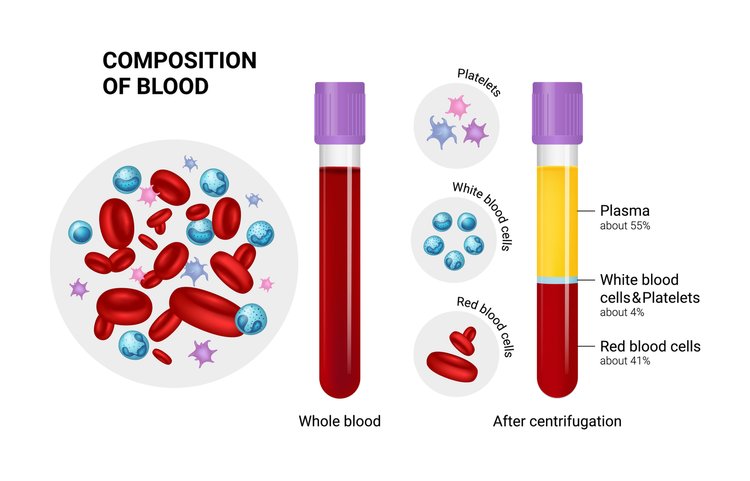
Stem Cells as the Raw Materials for PRP
As far as Platelet-Rich Plasma and its growth factors are concerned, they are mere repairmen. They can’t do the work by themselves. They need the basic raw materials to work with. And that raw material here is stem cells. Stem cells are the ones actually being regenerated to form new tissues for healing.
Supplying Both PRP and Stem Cells for Regeneration
Stem cells are the only raw materials that PRP works with for regeneration. These are like the fundamental building blocks of all other cells. These cells can be guided into becoming specialized cells under the right conditions. In addition, they can also divide themselves to form new stem cells or new specialized cells. So for Platelet-Rich Plasma to work well, it needs to be applied to an area with lots of stem cells like the heart, liver, blood vessels, etc. Incidentally, Platelet-Rich Plasma’s healing properties were first discovered by cardiac surgeons who played with concentrated blood for faster healing of the heart after surgery, and it showed tremendous promise because stem cells are abundant in heart tissues. But what if healing is needed in an area where there are not many stem cells?
With the new developments in stem cell technology, that can be solved too. Because now we can supply the stem cells to areas where there are less like the joints, ligaments, and tendons. For this, scientists usually use “mesenchymal stem cell” or MSCs. These are cells isolated from stroma and can differentiate to form adipocytes, cartilage, bone, tendons, muscle, and skin. The easiest way is to harvest it from adipose tissue or fat that we call Adipose-derived mesenchymal stem cells or ADSC.
The Future of Stem Cell Platelet-Rich Plasma
In regions with hypoxia (poor blood supply) like joints, meniscus tissue, rotator cuff, spinal discs, etc., the supply of platelets (and therefore growth factors) as well as the stem cells are limited. So what if we supplied both the stem cells and Platelet-Rich Plasma for triggering the regeneration process? That’s the question these Japanese scientists answered in their research. Here’s another group of scientists who took on the same challenge.
They used Adipose-derived mesenchymal stem cells (ADSC), which are known for their ease of isolation and extensive differentiation potential. These researchers noted that these stem cells often can’t survive in areas of local hypoxia, oxidative stress, and inflammation – thereby making them ineffective. However, when Platelet-Rich Plasma (or thrombin-activated PRP) is added to ADSC, it kept them alive for prolonged periods and the growth factors in the Platelet-Rich Plasma triggered cell differentiation and proliferation more easily.
Why This Exact Combination Is the Future
Done this way, both Adipose-derived mesenchymal stem cells (ADSC) and Platelet-Rich Plasma are raw materials for healing that’s already available in plenty in almost everyone (there are exceptions of course). That means, for complete healing to take place, this combination treatment, still in its very primitive stage of development, may have the potential to replace expensive synthetic drugs that carry complex unexplained side effects. The procedure takes our body’s natural healing agents — stem cells from body fat and PRP from blood — and then injects them inside the knee or other joints (or other areas where they are insufficient) for regeneration. Isn’t that like the most wonderful thing ever?
Whether it’s a cartilage cell, a bone cell, or a collagen cell for ligaments and tendons that need to be healed, all you need is a same-day procedure by a local, but specialized doctor, using the natural ingredients of the body. I believe this special combo is a huge win for Platelet-Rich Plasma.
The Challenges for Growing Adoption of This Treatment
We know Platelet-Rich Plasma has safe, yet high-speed recovery potential with its multiple growth factors. And it is effective in regenerative healing of cartilage injuries – the toughest injuries to heal – as well as Osteoarthritis. However, the challenges are Platelet Quality. We need to somehow ensure the Platelet-Rich Plasma quality is uniform. Currently, it varies from two to several fold above baseline concentration based on the donor’s physical condition.
Next, we need to identify the exact PRP growth factors that promote ADSC proliferation. Scientists believe growth factors such as basic fibroblast growth factor (bFGF), epidermal growth factor, and platelet-derived growth factor stimulate stem cell proliferation while some growth factors under certain conditions are known to inhibit the process. The percentage of PRP matters too. Scientists have tested 5 percent, 10 percent, 15 percent, and 20 percent Platelet-Rich Plasma in ADSC.
The Only Treatment in Modern Medicine for Cartilage Regeneration
The bottom line is that Stem Cell Platelet-Rich Plasma or ADSC + PRP procedure is the only treatment in modern medicine that has shown cartilage regeneration. So it’s too important to ignore. And it could be one of the greatest advances that science has brought to the millions of people suffering from serious pain in their joints, knee, and spine as well as people suffering from all kinds of tendon diseases and injuries.
To understand why stem cell platelet-rich plasma or co-transplantation of Adipose-derived mesenchymal stem cells and PRP, is such a remarkable idea in regenerative medicine, let’s spend a little time looking at the mechanics of PRP.
- Published in Corporate News / Blog
Aesthetic Practice Digital Marketing, Regenerative Medicine Master Classes at Jornadas Mediteraneas
ISSCA to host regenerative medicine symposium during Jornadas Mediteraneas—Mediterranean Days of Therapeutic Confrontations in Medicine and Cosmetic Surgery—in Barcelona.
MIAMI, April 2, 2018—The International Association for Stem Cell Application (ISSCA) has announced plans to host a regenerative medicine symposium during Jornadas Mediteraneas—Mediterranean Days of Therapeutic Confrontations in Medicine and Cosmetic Surgery— in Barcelona, Spain May 13, 2018.
The ISSCA symposium will provide a platform for Global Stem Cells Group to conduct master classes in digital marketing for aesthetic practices and regenerative medicine, conducted by specialists in these fields.
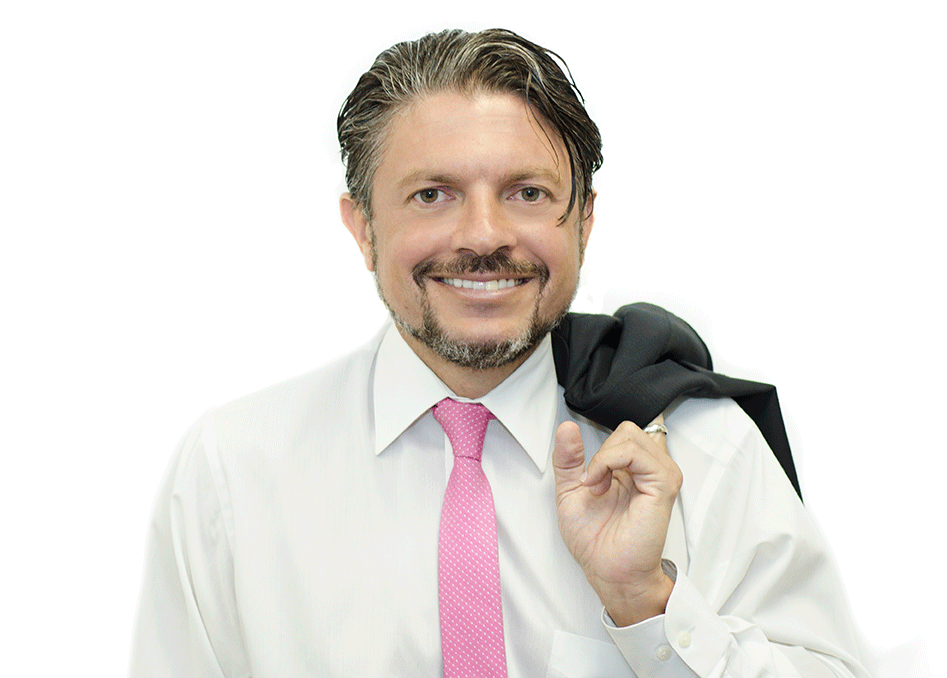
Benito Novas, Global Stem Cells Group CEO
GSCG CEO Benito Novas will conduct a master class in digital marketing for aesthetic physicians. Novas, a global entrepreneur and medical marketing professional in the fields of biotechnology, life sciences, and healthcare development, will share his expertise and the latest marketing tools for managing an aesthetic medicine practice. Topics will include social media strategies for promoting physician practices, and how to design Google and Facebook ads that generate targeted leads and engage new potential patients.
Novas’s class will provide aesthetic medicine professionals with a valuable opportunity to learn about the most effective marketing resources and methods for growing an aesthetic medicine practice and best practices for managing different advertising resources.
In addition, Novas’s class will offer expert tips for using content marketing strategies to build a practice. Following the class, Novas will launch his newest book, “Marketing Digital en su clinica Estetica”(“Digital Marketing in Your Aesthetics Clinic”) as well as his new online course, “Digital Marketing for Aesthetic Physicians.
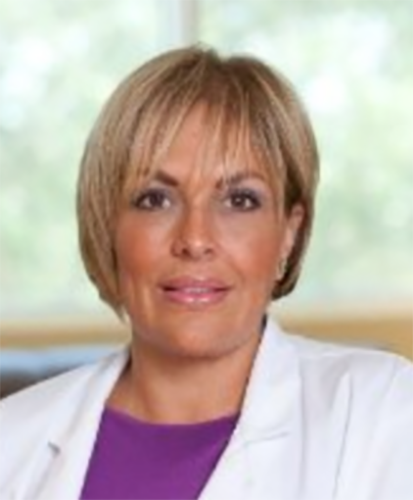
DRA Maritza Novas
The second master class will focus on regenerative medicine and will be split into two sessions, the first of which will be conducted by stem cell specialist DRA Maritza Novas and anti-aging and regenerative medicine specialist Leslie Mesen, M.D.
Novas and Mesen will offer instruction on adult stem cells, which have attracted the attention of scientists and physicians worldwide for their unique biological properties and potential for treating disease, injuries, and medical conditions. Stem cell research is complex and fast-growing, with new developments progressing rapidly.
Novas will share her expertise, experiences, and perspective on a broad range of topics regarding advancements in mesenchymal stem cell (MSC) applications during their transition from bench side to bedside.
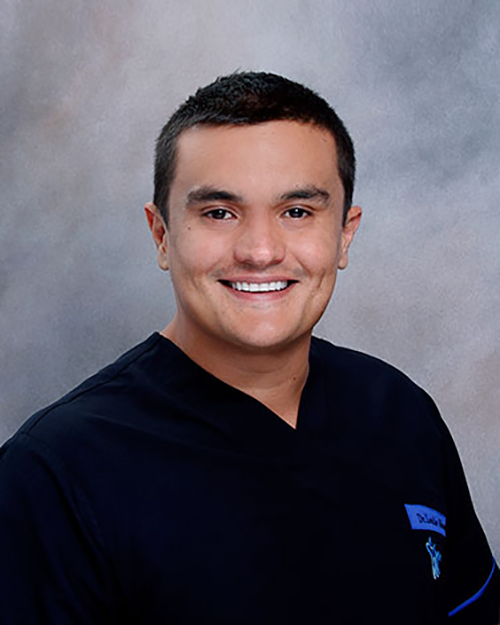
Leslie Mesen, M.D.
The second session will feature Mesen, Medical Director of Stem Cells Costa Rica who is board certified in anti-aging and regenerative medicine by The American Academy of Anti-Aging Medicine, and DRA Mar Vargas, Director of the Lasar Sculpture Medical Clinic in Escazu, Costa Rica, who will present their insights regarding clinical applications of stem cell treatments and share information about their clinical experiences with symposium audience members.
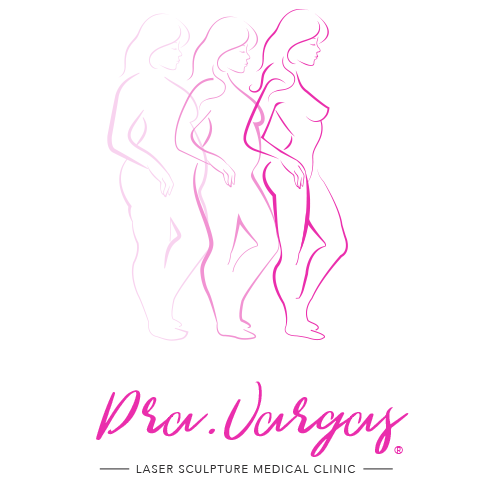
DRA Mar Vargas, Lasar Sculpture Medical Clinic
Sponsored by ISSCA, the symposium will utilize the Jornadas Mediteraneas platform to continue its mission to support a paradigm shift in healthcare from traditional to regenerative medicine in the 21st Century and provide cutting-edge information on developments in all areas of stem cell research.
To learn more about the symposium and digital marketing masterclass and to make a reservation, visit the stemcellconference.org website, email info@stemcellsgroup.com, or call +1305 560 5337.
About ISSCA:
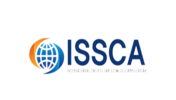 The International Society for Stem Cell Application (ISSCA) is a multidisciplinary community of scientists and physicians, all of whom aspire to treat diseases and lessen human suffering through advances in science, technology and the practice of regenerative medicine. ISSCA serves its members through advancements made to the specialty of regenerative medicine.
The International Society for Stem Cell Application (ISSCA) is a multidisciplinary community of scientists and physicians, all of whom aspire to treat diseases and lessen human suffering through advances in science, technology and the practice of regenerative medicine. ISSCA serves its members through advancements made to the specialty of regenerative medicine.The ISSCA’s vision is to take a leadership position in promoting excellence and setting standards in the regenerative medicine fields of publication, research, education, training. and certification.
As a medical specialty, regenerative medicine standards and certifications are essential, which is why ISSCA offers certification training in cities all over the world. The goal is to encourage more physicians to practice regenerative medicine and make it available to benefit patients both nationally and globally. Incorporated under the Republic of Korea as a non-profit entity, the ISSCA is focused on promoting excellence and standards in the field of regenerative medicine.
About Global Stem Cells Group:
Global Stem Cells Group (GSCG) is a worldwide network that combines seven major medical
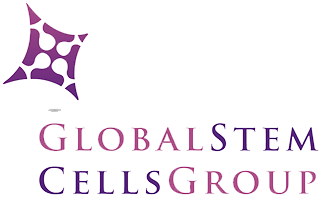 corporations, each focused on furthering scientific and technological advancements to lead cutting-edge stem cell development, treatments, and training. The united efforts of GSCG’s affiliate companies provide medical practitioners with a one-stop hub for stem cell solutions that adhere to the highest medical standards.
corporations, each focused on furthering scientific and technological advancements to lead cutting-edge stem cell development, treatments, and training. The united efforts of GSCG’s affiliate companies provide medical practitioners with a one-stop hub for stem cell solutions that adhere to the highest medical standards.Global stem cell’s mission is to be the largest recognized stem cell and regenerative medicine network in the world.
Jornadas Mediteraneas master classes
- Published in Press Releases
ISSCA President Deyoung Kim, Ph.D., Announces Regenerative Medicine Symposium in Korea Nov. 24, 2018
ISSCA Founder and President Daeyong Kim, Ph.D., announces plans to host the Regenerative Medicine Cell Therapies Symposium in Seoul, Korea in November.
MIAMI, April 2, 2018—International Association for Stem Cell Application (ISSCA) President Daeyong Kim, Ph.D., has announced plans to host Applications of Cell Therapies in Medicine and Aesthetic Surgery, a regenerative medicine symposium, in Seoul Korea November 24, 2018.
The symposium will be ISSCA’s principal event for 2018, during which the organization will launch its entire 2019 program, including stem cell certification courses for physicians to be held in locations worldwide, as well as the 2019 regenerative medicine symposium agenda.
In 2019, ISSCA plans to expand its activities to Asia by hosting at least one regenerative medicine symposium and four stem cell certification courses during the year. The Korea symposium will be structured as a scientific meeting in which regenerative medicine practitioners share their clinical experience. ISSCA affiliate Global Stem Cells Group, and biomedical and leading lab equipment manufacturer N-Biotek will launch new technology for regenerative medicine practitioners.
The international symposium is part of ISSCA’s mission to support a paradigm shift in healthcare from traditional to regenerative medicine in the 21st Century and provide cutting-edge information on developments in all areas of stem cell research. The Buenos Aires event will host a group of renowned international speakers in the field of stem cell and regenerative medicine, who will offer a day of rigorous scientific discourse aimed at physicians.
Topics of focus at the symposium include:
- Management of aging at the cellular level
- Stem cell therapies in medical aesthetics: the latest methods of harvest and isolation Non-invasive protocols of non-surgical facial and body rejuvenation
- Beyond fillers and toxins
- Combined treatment plans that include surgical methods for the management of advanced aging
- Restoration and assisted hair transplantation with biomaterials and growth factors
- The invaluable role of biological cosmeceutical in the management of aging
- The aging process from the inside out: the role of hormones
- Management of the latest digital marketing tools for recruiting patients in their aesthetic clinics
The symposium will incorporate the biology, medicine, applications, regulations, product development, and commercialization of stem cells. Business opportunities, challenges, and potential strategies for overcoming these challenges will also be addressed.
To learn more about the ISSCA Korea symposium and to make a reservation, visit the stemcellconference.org website, email info@stemcellsgroup.com, or call +1305 560 5337.
About ISSCA:
 The International Society for Stem Cell Application (ISSCA) is a multidisciplinary community of scientists and physicians, all of whom aspire to treat diseases and lessen human suffering through advances in science, technology and the practice of regenerative medicine. ISSCA serves its members through advancements made to the specialty of regenerative medicine.
The International Society for Stem Cell Application (ISSCA) is a multidisciplinary community of scientists and physicians, all of whom aspire to treat diseases and lessen human suffering through advances in science, technology and the practice of regenerative medicine. ISSCA serves its members through advancements made to the specialty of regenerative medicine.
The ISSCA’s vision is to take a leadership position in promoting excellence and setting standards in the regenerative medicine fields of publication, research, education, training. and certification.
As a medical specialty, regenerative medicine standards and certifications are essential, which is why ISSCA offers certification training in cities all over the world. The goal is to encourage more physicians to practice regenerative medicine and make it available to benefit patients both nationally and globally. Incorporated under the Republic of Korea as a non-profit entity, the ISSCA is focused on promoting excellence and standards in the field of regenerative medicine.
ISSCA Korea regenerative medicine symposium
- Published in Press Releases
Global Stem Cells Group to Launch New Online Training Platform at Jornadas Mediterraneas
Global Stem Cells Group announces plans to launch its new, updated stem cell training platform during Jornadas Mediteraneas in Barcelona, Spain, May 11, 2018
MIAMI, April 2, 2018—Global Stem Cells Group will launch its new, updated online stem cell training platform and an online digital marketing course for aesthetic physicians at the Jornadas Mediteraneas conference in Barcelona, Spain, May 11, 2018.
Designed to provide physicians with a new stem cell medicine skills and tools they can use to treat patients in their medical practices. The platform includes new courses like Regenerative Medicine Protocols, available in English and Spanish and offering 16 hours of expert lectures and step-by-step video, footage designed for physician training,
Global Stem Cells Group developed the new online training platform in response to increased demand for regenerative medicine treatments for patient who are increasingly requesting their physicians to make stem cell protocols available.
Global Stem Cells Group’s certified online training platform has gained popularity among physicians who wish to make stem cell treatment protocols available at their practices, and need a training option for learning how to implement regenerative medicine techniques and protocols at their own pace, conveniently from home or office.
GSCG’s online training courses are conducted by stem cell and regenerative medicine experts at GSCG affiliate Stem Cell Training. Online coursework provides didactic lectures on regenerative medicine and scientifically validated protocols. Lecture topics include:
• Stem cell biology
• Regulatory environments for stem cell harvesting and transplantation
• Platelet-rich plasma
• Induced pluripotent stem cells
• cGMPs for stem cell therapies
• Embryonic stem cells
• Bone marrow stem cells
• Adipose-derived stem cells
• Harvesting and isolating adipose-derived stem cells
• Harvesting and isolating bone marrow stem cells
The online programs include training videos, training booklets, detailed protocols, and power point presentations with instructions and images for:
• Adipose extraction
• Adipose stem cell isolation
• Bone marrow stem cell isolation
• Platelet-rich plasma
• Patient forms and guidelines (including editable and non-editable confidential medical history for pre- and post-medical instruction, safety guidelines for harvesting adipose tissue, blood work request flyer and confirmation of treatment detailer)
• Sample informed consent forms (for adipose-derived stem cells, bone marrow-derived stem cells, and platelet-rich plasma)
Stem cell banking with flyers for physicians and patients, as well as stem cell banking requests for cryopreservation
• Stem cell training lecture notes
• Access to regenerative medicine experts
Physicians can also choose to combine the online coursework with one-on-one training provided by a regenerative medicine specialist.
GSCG is also making its new online digital marketing course, “Digital Marketing for Aesthetic Physicians” a comprehensive source for aesthetic practitioners available in both English and Spanish. Developed by GSCG CEO and medical marketing professional Benito Novas, the course offers valuable information on the latest marketing tools for managing an aesthetic medicine practice. Topics include social media strategies and tools for promoting physician practices and advise on designing Google and Facebook ads that generate targeted leads and engage new potential patients.
Digital marketing is critical to growing and maintaining a successful practice at a time where most audiences are searching for practitioners online. GSCG’s virtual coursework allows professionals in the aesthetic medicine field to learn the latest tools and strategies for attracting new patients on their own time and at their own pace from home or office.
The course also offers tips for using key content marketing strategies to build a practice. “Digital Marketing for Aesthetic Physicians” provides a valuable opportunity to learn about the most effective marketing resources and methods for growing an aesthetic medicine practice, including best practices for managing different advertising resources such as Facebook Ads and Google Ads.
To learn more about Global Stem Cells Group’s online training platform and digital marketing course for aesthetic practices, visit the Global Stem Cells Group website, email info@stemcellsgroup.com, or call +1305 560 5337.
About Global Stem Cells Group:
Global Stem Cells Group (GSCG) is a worldwide network that combines seven major medical corporations, each focused on furthering scientific and technological advancements to lead cutting-edge stem cell development, treatments, and training. The united efforts of GSCG’s affiliate companies provide medical practitioners with a one-stop hub for stem cell solutions that adhere to the highest medical standards.
Global stem cell’s mission is to be the largest recognized stem cell and regenerative medicine network in the world.
About Global Stem Cells Group:
 Global Stem Cells Group (GSCG) is a worldwide network that combines seven major medical corporations, each focused on furthering scientific and technological advancements to lead cutting-edge stem cell development, treatments, and training. The united efforts of GSCG’s affiliate companies provide medical practitioners with a one-stop hub for stem cell solutions that adhere to the highest medical standards.
Global Stem Cells Group (GSCG) is a worldwide network that combines seven major medical corporations, each focused on furthering scientific and technological advancements to lead cutting-edge stem cell development, treatments, and training. The united efforts of GSCG’s affiliate companies provide medical practitioners with a one-stop hub for stem cell solutions that adhere to the highest medical standards.
Global stem cell’s mission is to be the largest recognized stem cell and regenerative medicine network in the world.
Global Stem Cells Group new online training
- Published in Press Releases
Engineering Stem and Stromal Cell Therapies for Musculoskeletal Tissue Repair
Musculoskeletal tissue injuries and degeneration are common and debilitating for a high number of patients (Brooks, 2006). Unfortunately, endogenous musculoskeletal tissue regeneration is limited in many cases and may be affected by inflammation and the degree of damage. For example, most fractures of long bones heal spontaneously, whereas large segmental defects fail to heal. Additionally, although articular cartilage has almost no intrinsic reparative potential, tendons and ligaments may heal, but often with inferior properties. The high prevalence of these injuries has led to significant investment in the development of new therapies to enhance healing and augment current surgical interventions. Often the goal is to mimic and recapitulate the natural healing cascade and developmental process by transplantation of tissue-specific stromal and progenitor cells or by endogenous manipulation to enhance the native repair capacity of cells.
Advances in Stem and Stromal Cell Therapies
There has been a continuing increase in the number and type of stem and stromal cells being pursued in human clinical trials for treatment of musculoskeletal injuries (Steinert et al., 2012). Most approaches in this area are based on ex vivo-expanded mesenchymal stromal cells (MSCs) derived from bone marrow (BM). Originally identified and characterized by their multilineage differentiation potential in vitro, multipotent capabilities of MSCs in vivo have not been clearly demonstrated to date, particularly because of the lack of methods to identify and define differentiated populations (Nombela-Arrieta et al., 2011). Central to recent progress in the field has been the understanding that stem and progenitor functions of MSCs may not be the key attribute that mediates tissue repair. In addition, there is outstanding controversy over the terminology of exogenously supplied MSCs as stromal cells, and various terms, including medicinal signaling cells, have been proposed to more accurately reflect their therapeutic function in vivo (Caplan, 2017). Nevertheless, the therapeutic benefit of these cells has been largely explored. Significant advances have been made in developing strategies that deliver, protect, and recruit stem cells, and the bioengineering field is evolving to improve current surgical techniques.
Current Treatments and Clinical Investigations
This review first describes current treatments and reports the recent progress in clinical investigations of stem and stromal cell-based therapies for musculoskeletal repair with a particular focus on bone and fibrocartilaginous tissues. The current understanding of appropriate cell sources and delivery strategies is then illustrated toward endogenous repair of musculoskeletal tissues. Last, emerging therapeutic concepts are highlighted in the context of biomaterials as a particularly attractive tool to control stem and stromal cell behavior both ex vivo and in vivo, to recruit endogenous stem cells, and to control the local healing environment. Such approaches have great potential for future therapies in musculoskeletal repair.
Bone Repair
The intrinsic repair of bone defects mirrors many events of embryonic development and makes fracture healing one of the rare postnatal processes that are regenerative and can ultimately restore damaged tissue to its pre-injury structure, composition, and biomechanical function (Figure 1). In spite of the unique capacity of bone to heal, a number of clinical indications remain where therapeutic intervention is required. In the case of complex trauma with multiple fractures, infections, and tumor-associated and endocrine diseases (e.g., diabetes, osteoporosis), the body’s natural healing response is impaired, and non-union can occur in up to 15% of cases (Grayson et al., 2015). Another debilitating disorder is non-traumatic avascular osteonecrosis, which can lead to collapse of the femoral head and accounts for 10,000–20,000 total hip replacement surgeries in the United States per year (Figure 1; Moya-Angeler et al., 2015). Autologous bone grafting represents the gold standard for management of bone defects and non-unions, and union rates of more than 90% have been reported using iliac crest bone. However, considerable donor site morbidity and limited volumes must be taken into consideration. Additionally, allogeneic or synthetic bone substitutes, such as ceramics, corals, or polymer-based materials, have not reached the biological and mechanical properties equivalent to autologous bone (Table 1).
Skeletal Muscle
In addition to direct traumatic injury, complex damage of bone tissue (e.g., open fractures, tumor ablations) often results in concomitant soft tissue injury, including adjacent muscles. Although skeletal muscle has the inherent ability to regenerate after injuries, the regenerative capacity fails when a large volume of muscle is lost (i.e., volumetric loss). Such severe injuries may lead to fibrosis, atrophy, and ischemia when left untreated, accounting for significant socioeconomic costs ($18.5 billion in healthcare costs are associated with sarcopenia alone) (Janssen et al., 2004). Therapeutic treatment options are limited to physical therapy, scar tissue debridement, and transfer of healthy, innervated, and vascularized autologous muscle tissue. However, the outcomes of surgical reconstructions often remain aesthetically and functionally deficient (Grogan et al., 2011; Table 1).
Articular Cartilage and Meniscus
In contrast to bone and skeletal muscle tissue, the poor intrinsic healing capacity of articular cartilage and meniscus tissue presents a major challenge in clinics. Lesions from injuries or degeneration often result in gradual tissue erosion, leading to impaired function of the affected joint and degenerative osteoarthritis (OA) (Figure 1). Patients with post-traumatic OA account for more than 10% of the 27 million adults in the United States that have a clinical diagnosis of OA (Johnson and Hunter, 2014). Commonly, the first-line treatment of articular injuries includes arthroscopic lavage, partial meniscectomy, and BM stimulation techniques to penetrate subchondral bone (Table 1). Microfracture has been considered the gold standard for stimulating endogenous repair; however, it often results in the formation of inferior fibrocartilaginous repair tissue. This cartilaginous tissue is vulnerable due to altered biomechanics of the subchondral bone, which raises concerns about the long-term efficacy of microfracture (Solheim et al., 2016). Therefore, secondary and more complex procedures strive to restore the hyaline cartilage, such as osteochondral autografting from the less weight-bearing periphery (mosaicplasty) and autologous chondrocyte implantation (ACI). ACI represents one of the first clinical applications of tissue engineering where a biopsy from a low-weight-bearing region is performed, and ex vivo-expanded chondrocytes are implanted in a second operation. The de-differentiation of monolayer expanded chondrocytes and potential of recovery when implanted has been a matter of debate, and matrix-based ACI techniques have been developed that use absorbable scaffolds (e.g., porcine collagen) to support the implanted cells (Makris et al., 2015). An important limitation of these techniques is the long recovery time (6–12 months) to ensure neotissue formation. The choice of articular injury treatment depends on several factors, including localization and size of the lesion, the level of activity, and the degree of associated damage of menisci and ligaments.
Meniscus Repair
Tears of the fibrocartilaginous menisci require surgical intervention for nearly 1 million patients in the United States annually (Vrancken et al., 2013). For lesions located in the peripheral vascularized region of the meniscus, repair strategies such as sutures and anchors allow preservation of the meniscal tissue. However, meniscal lesions often appear in the avascular central regions, which makes them less suitable for healing and usually requires partial or (sub)total meniscectomy (Figure 1; Table 1). In some cases, further treatment with a meniscal substitute, such as an allograft or a synthetic implant, is indicated to limit OA (Vrancken et al., 2013).
Other Fibrous Musculoskeletal Tissues
Another large proportion of musculoskeletal injuries in the clinic is represented by other damaged fibrous structures, including tendons, ligaments, and the annulus fibrosus (AF). Often, degenerative pathology precedes acute trauma, and, like articular cartilage, these tissues have a limited healing capacity. One of the most common tendon injuries presented clinically is tearing of one or more of the interdigitating tendons of the rotator cuff (Figure 1). Failure of initial physical therapy or acute trauma in young patients motivates surgical repair using open or arthroscopic approaches for subacromial decompression, tendon debridement, and suture or anchor supplementation (Table 1). Still, repair is limited, particularly within the complex anatomic arrangement forming the shoulder cuff. The formation of fibrovascular scar tissue frequently leads to significant morbidity, re-ruptures, and difficulties in treatment choice.
The intervertebral discs (IVDs) are composed of the nucleus pulposus (NP), a hydrophilic proteoglycan-rich gelatinous core, surrounded by a dense fibrocartilage ring—the AF (Figure 1). The gradual progression of IVD degeneration and the extrusion of the NP through defects in the AF is a major cause for lower back pain, a leading cause of global disability (Sakai and Andersson, 2015). Available treatments are mostly symptomatic, and surgical treatments often resect the structural obstruction resulting from herniation or fuse motion segments (Table 1). However, the complex structural features of IVDs surrounded by neural elements and inflammation frequently cause a homeostatic imbalance favoring a catabolic response governed by the loss of the IVD structure, which is often followed by facet joint arthritis and vertebra deformation, canal stenosis, and even deformations. Most importantly, disc replacement with synthetic implants or fusion of the motion segment does not cure the underlying pathology of IVD degeneration (Sakai and Andersson, 2015).
- Published in Corporate News / Blog
ISSCA to Host Regenerative Medicine Symposium in Buenos Aires, Argentina August 24, 2018
Image: Facultad de Medicina – Universidad de Buenos Aires
ISSCA will host Applications of Cell Therapies in Medicine and Aesthetic Surgery, a regenerative medicine symposium in Buenos Aires, Argentina, August 24, 2018.
MIAMI, March 18, 2018—The International Association for Stem Cell Application (ISSCA) has announced plans to host Applications of Cell Therapies in Medicine and Aesthetic Surgery, a regenerative medicine symposium. In Buenos Aires, Argentina August 24, 2018.
The international symposium is part of ISSCA’s mission to support a paradigm shift in healthcare from traditional to regenerative medicine in the 21st Century and provide cutting-edge information on developments in all areas of stem cell research. The Buenos Aires event will host a group of renowned international speakers in the field of stem cell and regenerative medicine, who will offer a day of rigorous scientific discourse aimed at physicians.
Topics of focus at the symposium include:
- Management of aging at the cellular level
- Stem cell therapies in medical aesthetics: the latest methods of harvest and isolation Non-invasive protocols of non-surgical facial and body rejuvenation
- Beyond fillers and toxins
- Combined treatment plans that include surgical methods for the management of advanced aging
- Restoration and assisted hair transplantation with biomaterials and growth factors
- The invaluable role of biological cosmeceutical in the management of aging
- The aging process from the inside out: the role of hormones
- Management of the latest digital marketing tools for recruiting patients in their aesthetic clinics
The symposium will incorporate the biology, medicine, applications, regulations, product development, and commercialization of stem cells. Business opportunities, challenges, and potential strategies for overcoming these challenges will also be addressed.
The event will be held at the Facultad de Medicina – Universidad de Buenos Aires
To learn more about the ISSCA Buenos Aires symposium and to make a reservation, visit the stemcellconference.org website, email info@stemcellsgroup.com, or call +1305 560 5337.
About ISSCA:
 The International Society for Stem Cell Application (ISSCA) is a multidisciplinary community of scientists and physicians, all of whom aspire to treat diseases and lessen human suffering through advances in science, technology and the practice of regenerative medicine. ISSCA serves its members through advancements made to the specialty of regenerative medicine.
The International Society for Stem Cell Application (ISSCA) is a multidisciplinary community of scientists and physicians, all of whom aspire to treat diseases and lessen human suffering through advances in science, technology and the practice of regenerative medicine. ISSCA serves its members through advancements made to the specialty of regenerative medicine.
The ISSCA’s vision is to take a leadership position in promoting excellence and setting standards in the regenerative medicine fields of publication, research, education, training. and certification.
As a medical specialty, regenerative medicine standards and certifications are essential, which is why ISSCA offers certification training in cities all over the world. The goal is to encourage more physicians to practice regenerative medicine and make it available to benefit patients both nationally and globally. Incorporated under the Republic of Korea as a non-profit entity, the ISSCA is focused on promoting excellence and standards in the field of regenerative medicine.
###
ISSCA Buenos Aires Regenerative Medicine Symposium
- Published in Press Releases
ISSCA Founder Daeyong Kim, Ph.D., and Syed Salman Naeem Gilani, M.D. to speak at Istanbul Symposium
ISSCA Founder Daeyong Kim, Ph.D., and Syed Salman Naeem Gilani, M.D. to speak at the Regenerative Medicine Cell Therapies Symposium in Istanbul, Turkey, April 28, 2018.
MIAMI, March 18, 2018—ISSCA Founder and General Director Daeyong Kim, Ph.D., and Syed Salman Naeem Gilani, M.D. will be keynote speakers at the ISSCA Regenerative Medicine Cell Therapies Symposium in Istanbul, Turkey April 28, 2018. Kim will discuss stem cell therapies for diabetes, and Gilani will speak on the effect of autologous bone marrow-derived stem cells treatments on knee osteoarthritis.
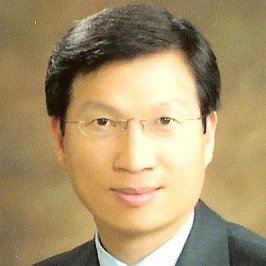
Daeyong Kim, Ph.D.
Kim, a Global Stem Cells Group Advisory Board member, is an internationally recognized health educator, and CEO of N-Biotek, Inc, a preeminent manufacturer of biomedical and laboratory equipment and leader of stem cell technology solutions for providers worldwide.
Additionally, Kim is vice-president of BioChip Society, CEO of GTOP Construction Inc, managing director Woojoo Telecom, and managing director of KEPCO KDN.
In 2013, Kim completed an international business course at UC Berkeley, U.S. and received and an M.D. in alternative medicine at IBAM, India. In 2016, he received a Ph.D. in adipose-derived stem cell research at Westminster University in Korea.
Gilani is the Founder, CEO and Stem Cell/Regenerative Medicine Consultant for The Institute of Regenerative Medicine in Rawalpindi, Pakistan, the first-of-its-kind regenerative medicine institute in Pakistan that caters to clinical applications of stem cell and other regenerative medicine treatments. The institute also serves as a center of excellence in training physicians and paramedic staff in regenerative medicine in Pakistan.
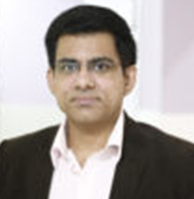
Syed Salman Naeem Gilani, M.D.
In 2000, Gilani received his medical degree from Rawalpindi Medical College, Punjab University and completed a Fellowship in Stem Cell Therapy from the American Board of Anti-aging and Regenerative Medicine. He is ECFMG certified, a member of the American Academy of Anti-Aging and Regenerative Medicine, and a Diplomat of the American Academy of Aesthetic Medicine.
The Istanbul international symposium is part of ISSCA’s mission to support a paradigm shift from traditional healthcare solutions to regenerative medicine and provide the latest innovative discoveries and developments in all areas of stem cell research. The symposium will host a group of renowned international speakers, experts in the field of stem cell and regenerative medicine, who will provide a full day of rigorous scientific discourse directed to physicians.
The day’s events will incorporate information on stem cell biology, medicine, applications, regulations, product development, and commercialization, business opportunities, challenges, and potential strategies for overcoming those challenges.
To participate in the ISSCA Istanbul Symposium, reserve your spot by registering today. For more information, visit the stemcellconference.org website, email info@stemcellsgroup.com, or call +1305 560 5337.
About International Society for Stem Cell Application (ISSCA):
The International Society for Stem Cell Application (ISSCA) is a multidisciplinary community of scientists and physicians, all of whom aspire to treat diseases and lessen human suffering through advances in science, technology and the practice of regenerative medicine. ISSCA serves its members through advancements made to the specialty of regenerative medicine.
The ISSCA’s vision is to take a leadership position in promoting excellence and setting standards in the regenerative medicine fields of publication, research, education, training, and certification.
As a medical specialty, regenerative medicine standards and certifications are essential, which is why ISSCA offers certification training in cities all over the world. The goal is to encourage more physicians to practice regenerative medicine and make it available to benefit patients both nationally and globally. Incorporated under the Republic of Korea as a non-profit entity, the ISSCA is focused on promoting excellence and standards in the field of regenerative medicine.
###
Daeyong Kim, Ph.D., and Syed Salman Naeem Gilani, M.D.
- Published in Press Releases
R. Gökmen Turan M.D., Ph.D. and Mahir Mahirogullari, M.D. to speak at ISSCA Symposium in Istanbul April 28
ISSCA names R. Gökmen Turan M.D., Ph.D., and Mahir Mahirogullari, M.D. keynote speakers at the Regenerative Medicine Cell Therapies Symposium in Istanbul, Turkey, April 28, 2018.
MIAMI, March 18, 2018— R. Gökmen Turan M.D., Ph.D. and Mahir Mahirogullari, M.D. will be featured speakers at the ISSCA Regenerative Medicine Cell Therapies Symposium in Istanbul, Turkey April 28, 2018. Turan will speak on therapeutic applications of stem cells in heart failure, and Mahirogullari will discuss cartilage treatment combining stem cells and biomedical scaffolds.
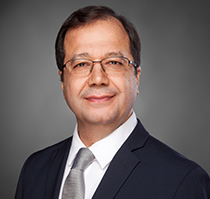
R. Gökmen Turan M.D., Ph.D.
Turan is a cardiologist and head of the Structural Heart Disease Department of Internal Medicine, Division of Cardiology at Porz Hospital, University Hospital of Cologne and University of Witten/Herdecke Germany.
Mahirogullari is an orthopedic surgeon specializing in sports medicine and traumatology. He currently serves as a professor at Memorial Health Group in İstanbul, Turkey.
His focus includes multi-ligament injuries and cartilage repair of the knee; arthroplasty of the knee, hip and shoulder; arthroscopy of the knee, shoulder, hip, ankle and elbow joints; surgery of instability and cuff tear of the shoulder; orthopedic trauma, and the application of platelet-rich plasma (PRP), bone marrow aspirate stem cells and adipose-derived stem cells for treatment of orthopedic pathologies especially cartilage injuries.
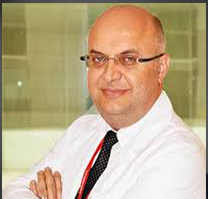
Mahir Mahirogullari. M.D.
Mahirogullari received his medical degree (M.D.) from Gülhane Military Medical Academy School of Medicine in Ankara, Turkey in 1992 and completed his residency at GATA Haydarpasa Training Hospital in Istanbul.
He served as a general practitioner and orthopedic surgeon, treating and managing multi-trauma patients and war injuries. He also served with KFOR, NATO in Kosovo for six months. He worked as a Fellow with arthroscopic shoulder, knee, and trauma specialist Gary G. Poehling, M.D. in Winston Salem, North Carolina for one year before joining the faculty at Istanbul Medipol University School of Medicine in 2012 as chairman of the Department of Orthopedic Surgery. He has worked within the Memorial Health Group in Istanbul since 2016.
Mahirogullari is a member of The Turkish Society of Orthopedics and Traumatology (TOTBİD), The Turkish Society of Arthroscopy Knee Surgery & Orthopedics Sport Medicine (TUSYAD), The International Society of Arthroscopy Knee Surgery & Orthopedics Sport Medicine (ISAKOS), The Turkish Society of Shoulder and Elbow Society, The European Society of Sports Traumatology Knee Surgery and Arthroscopy (ESSKA 2000), The Turkish Board Certificate, and The Turkish Society of Hip and Knee Arthroplasty.
The Istanbul international symposium is part of ISSCA’s mission to support a paradigm shift from traditional healthcare solutions to regenerative medicine and provide the latest innovative discoveries and developments in all areas of stem cell research. The symposium will host a group of renowned international speakers, experts in the field of stem cell and regenerative medicine, who will provide a full day of rigorous scientific discourse directed to physicians.
The day’s events will incorporate information on stem cell biology, medicine, applications, regulations, product development, and commercialization, business opportunities, challenges, and potential strategies for overcoming those challenges.
To participate in the ISSCA Istanbul Symposium, reserve your spot by registering today. For more information, visit the stemcellconference.org website, email info@stemcellsgroup.com, or call +1305 560 5337.
About International Society for Stem Cell Application (ISSCA):
The International Society for Stem Cell Application (ISSCA) is a multidisciplinary community of scientists and physicians, all of whom aspire to treat diseases and lessen human suffering through advances in science, technology and the practice of regenerative medicine. ISSCA serves its members through advancements made to the specialty of regenerative medicine.
The ISSCA’s vision is to take a leadership position in promoting excellence and setting standards in the regenerative medicine fields of publication, research, education, training, and certification.
As a medical specialty, regenerative medicine standards and certifications are essential, which is why ISSCA offers certification training in cities all over the world. The goal is to encourage more physicians to practice regenerative medicine and make it available to benefit patients both nationally and globally. Incorporated under the Republic of Korea as a non-profit entity, the ISSCA is focused on promoting excellence and standards in the field of regenerative medicine.
###
R. Gökmen Turan M.D., Ph.D. and Mahir Mahirogullari, M.D.
- Published in Press Releases
ISSCA to Host New Stem Cell Training Course May 25-26, 2018 in Bogota, Colombia
Image: Bogota, Colombia
ISSCA will conduct the next hands-on regenerative medicine certification training course for physicians in Bogota, Colombia May 25-26, 2018.
MIAMI, Nov. 20, 2017—The International Society for Stem Cell Application (ISSCA) announced plans to hold its next hands-on regenerative medicine certification training course for physicians in Bogota, Colombia May 25-26, 2018.
Plans for the next training workshop follow the success of the organization’s first Bogota-based course held March 2-3, 2018 and attended by eight physicians from three countries—Spain, Colombia, and Ecuador.
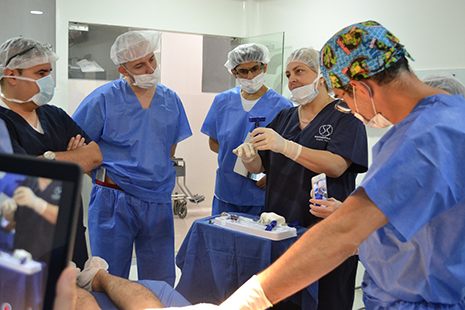
Stem cell training
The two-day, intensive training course teaches participating physicians how to harvest stem cells from adipose and bone marrow tissue. Participants learn while they conduct regenerative medicine protocols on live patients under the direction of stem cell training experts. Skills learned in the training course can be used to treat a variety of medical and aesthetic conditions such as osteoarthritis and facial rejuvenation.
Once certified, practitioners learn can use the techniques learned to treat patients in their practices and in clinical settings for career advancement. The course provides participating physicians with access to ISSCA’s online stem cell training course to review all content and procedures introduced during the two-day clinical training course, as well as patient forms and guidelines, procedures, informed consent forms, didactic lectures, training booklets, and more.
The ISSCA regenerative medicine protocols training course was developed for physicians and high-level practitioners to learn techniques in harvesting and reintegrating stem cells derived from patients’ adipose tissue and bone marrow.
Stem cell therapies continue to revolutionize the anti-aging aesthetics industry and help improve the quality of life for patients suffering from some chronic conditions.
Seating for this training course is limited. Register today to participate by visiting the Stem Cell Training Course Bogota website, email info@stemcellsgroup.com, or call 305-560-5337.
About ISSCA:
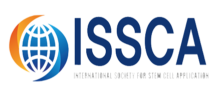 The International Society for Stem Cell Application (ISSCA) is a multidisciplinary community of scientists and physicians, all of whom aspire to treat diseases and lessen human suffering through advances in science, technology and the practice of regenerative medicine. ISSCA serves its members through advancements made to the specialty of regenerative medicine.
The International Society for Stem Cell Application (ISSCA) is a multidisciplinary community of scientists and physicians, all of whom aspire to treat diseases and lessen human suffering through advances in science, technology and the practice of regenerative medicine. ISSCA serves its members through advancements made to the specialty of regenerative medicine.The ISSCA’s vision is to take a leadership position in promoting excellence and setting standards in the regenerative medicine fields of publication, research, education, training, and certification.
As a medical specialty, regenerative medicine standards and certifications are essential, which is why ISSCA offers certification training in cities all over the world. The goal is to encourage more physicians to practice regenerative medicine and make it available to benefit patients both nationally and globally. Incorporated under the Republic of Korea as a non-profit entity, the ISSCA is focused on promoting excellence and standards in the field of regenerative medicine.
###
Stem cell training Bogota
- Published in Press Releases
Mehmet Veli Karaaltın M.D. and Mehmet Bozourt, M.D. to speak at ISSCA Symposium in Istanbul April 28
ISSCA announces keynote speakers Mehmet Veli Karaaltın, M.D. and Mehmet Bozkurt, M.D. at the Regenerative Medicine Cell Therapies Symposium in Istanbul, Turkey, April 28.
MIAMI, March 18, 2018— Mehmet Veli Karaaltın M.D. and Mehmet Bozkurt, M.D. will be featured speakers at the ISSCA Regenerative Medicine Cell Therapies Symposium in Istanbul, Turkey April 28, 2018. Karaaltın will speak on the role of cellular therapy and futuristic applications in plastic reconstructive surgery: from anti-aging to reconstructive surgery (level evidence IV). Bozkurt will discuss the application of regenerative cells on immunologic and diabetic wounds and severe burns.

Mehmet-Veli-Karaaltın, M.D.
Karaaltın, a Global Stem Cells Group advisory board member, specializes in head and maxillofacial surgery and hand surgery, and serves as an associate professor of plastic aesthetic & reconstructive surgery (European Board Certified) at Hacettepe University Medical Faculty in Ankara, Turkey.
After graduating from Istanbul University’s Cerrahpaşa English Medical Faculty, Karaaltın completed a national examination from Hacettepe University in Ankara, Turkey, placing 12th out of 25,000 doctoral candidates. He later completed all exam requirements of the European Society of Plastic Surgery. He is a member of the European Council of Plastic Reconstructive and Aesthetic Surgery and the International Society of Aesthetic Plastic Surgery (ISAPS).
In addition to his work in aesthetic applications, Karaaltın is also known for his work in microvascular free flaps, nerve transfers, facial surgery, and tissue transplants. He also practices cellular therapy and tissue regeneration for healing diabetic wounds, severe burns, and Buerger’s disease. He is one of only a few physicians in the world who offer surgical treatment for Lymphedema-Elephant Disease with microvascular lymph node transfer.
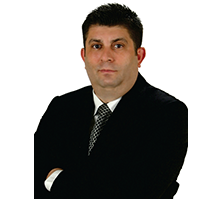
Mehmet Bozkurt, M.D.
Bozkurt is a plastic and reconstructive surgeon and serves as chairman and director of the plastic reconstructive surgery and burn center at Kartal Dr. Lütfi Kırdar Training and Research Hospital in Istanbul. He completed his clinical fellowship in microsurgery at Cleveland Clinic in 2012. Bozkurt is a member of The International Federation for Adipose Therapeutics and Science, The İnternational Society of Burn Association, and The Turkish Aesthetic Surgery Association. He is board certified in European plastic surgery and Turkish plastic surgery.
He completed medical school in July 1995 at the Gulhane Military Medical Academy Faculty of Medicine in Ankara, Turkey and completed post-graduate studies and training in emergency medicine, microsurgery, plastic and reconstructive surgery, orthopedic medicine, and preventative medicine. He is the recipient of numerous honors and awards in his field.
The Istanbul international symposium is part of ISSCA’s mission to support a paradigm shift from traditional healthcare solutions to regenerative medicine and provide the latest innovative discoveries and developments in all areas of stem cell research. The symposium will host a group of renowned international speakers, experts in the field of stem cell and regenerative medicine, who will provide a full day of rigorous scientific discourse directed to physicians.
The day’s events will incorporate information on stem cell biology, medicine, applications, regulations, product development, and commercialization, business opportunities, challenges, and potential strategies for overcoming those challenges.
To participate in the ISSCA Istanbul Symposium, reserve your spot by registering today. For more information, visit the stemcellconference.org website, email info@stemcellsgroup.com, or call +1305 560 5337.
About International Society for Stem Cell Application (ISSCA):
The International Society for Stem Cell Application (ISSCA) is a multidisciplinary community of scientists and physicians, all of whom aspire to treat diseases and lessen human suffering through advances in science, technology and the practice of regenerative medicine. ISSCA serves its members through advancements made to the specialty of regenerative medicine.
The ISSCA’s vision is to take a leadership position in promoting excellence and setting standards in the regenerative medicine fields of publication, research, education, training, and certification.
As a medical specialty, regenerative medicine standards and certifications are essential, which is why ISSCA offers certification training in cities all over the world. The goal is to encourage more physicians to practice regenerative medicine and make it available to benefit patients both nationally and globally. Incorporated under the Republic of Korea as a non-profit entity, the ISSCA is focused on promoting excellence and standards in the field of regenerative medicine.
###
Mehmet Veli Karaaltın M.D. and Mehmet Bozourt, M.D.
- Published in Press Releases

